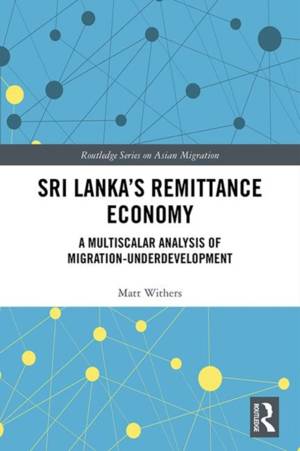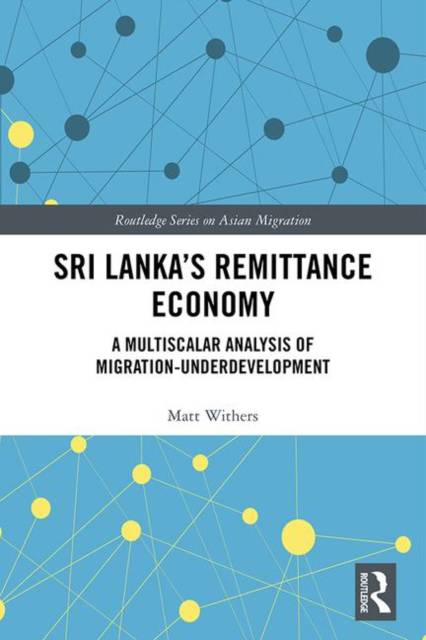
- Retrait gratuit dans votre magasin Club
- 7.000.000 titres dans notre catalogue
- Payer en toute sécurité
- Toujours un magasin près de chez vous
- Retrait gratuit dans votre magasin Club
- 7.000.0000 titres dans notre catalogue
- Payer en toute sécurité
- Toujours un magasin près de chez vous
Description
Employing a multiscalar approach to migration outcomes, spanning individual households, local communities, the macroeconomy and global patterns of capital accumulation, this book demonstrates how cumulatively causal processes at structural, institutional and agency levels have forged a precariously remittance-dependent economy in Sri Lanka.
This book combines historical-structural analysis with qualitative research to contend that remittance inflows have reinforced patterns of uneven development in Sri Lanka. At the heart of this argument is a bold critique of remittance capital that inverts the migration-development nexus which has come to dominate international policymaking, with implications for Sri Lanka and other 'remittance economies' throughout the Global South. The author contends that temporary labour migration from Sri Lanka is a process of 'migration-underdevelopment', in which remittance inflows - ubiquitously considered a key source of capital for developing economies - are reinforcing of uneven development at multiple scales and produce unsustainable development outcomes.
Offering a uniquely systematic critique of remittances as a source of developmental capital for countries of origin, such as Sri Lanka, this book will be of interest to academics in the field of development studies, migration studies and Asian studies.
Spécifications
Parties prenantes
- Auteur(s) :
- Editeur:
Contenu
- Nombre de pages :
- 178
- Langue:
- Anglais
- Collection :
Caractéristiques
- EAN:
- 9781138320048
- Date de parution :
- 21-05-19
- Format:
- Livre relié
- Format numérique:
- Genaaid
- Dimensions :
- 155 mm x 239 mm
- Poids :
- 385 g

Les avis
Nous publions uniquement les avis qui respectent les conditions requises. Consultez nos conditions pour les avis.






